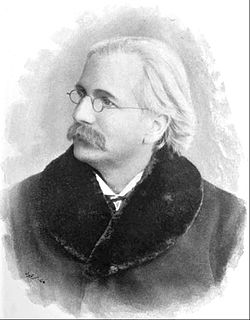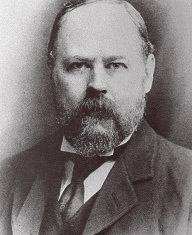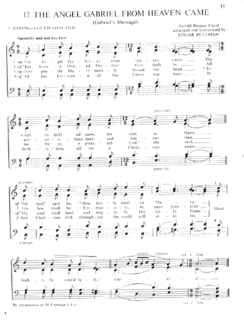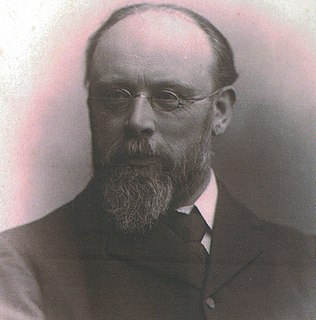Related Research Articles

Sir Joseph Barnby was an English composer and conductor.

Sir John Stainer was an English composer and organist whose music, though seldom performed today, was very popular during his lifetime. His work as choir trainer and organist set standards for Anglican church music that are still influential. He was also active as an academic, becoming Heather Professor of Music at Oxford.

Joseph Parry was a Welsh composer and musician. Born in Merthyr Tydfil, Wales, he is best known as the composer of "Myfanwy" and the hymn tune "Aberystwyth", on which the African song "Nkosi Sikelel' iAfrika" is said to be based. Parry was also the first Welshman to compose an opera; his composition, Blodwen, was the first opera in the Welsh language.

Basil Harwood was an organist and composer in the English church music tradition, best known today for his liturgical works, particularly his anthem O How Glorious is the Kingdom (1898) and his Service in A flat (1892), which still remain popular in English churches. He wrote numerous hymn tunes, several of which became well-known including Luckington and Thornbury ("O Jesus I Have Promised" and "Thy hand, O God, has Guided").

Thomas Tertius Noble was an English-born organist and composer, resident in the United States for the latter part of his career.

Sir Thomas Henry Wait Armstrong was an English organist, conductor, composer and educationalist. He was from a musical family and his early career was as a church and cathedral organist. From the 1920s onwards he was a broadcaster for the BBC giving talks as well as playing.

Sir John Frederick Bridge was an English organist, composer, teacher and writer.
Eric Harding Thiman was an English composer, conductor and organist. The surname is pronounced 'tea-man'. By 1939 he was considered one of the leading non-conformist organists in England.
Henry Farmer was an organist and composer based in Nottingham.

James Hamilton Siree Clarke, better known as Hamilton Clarke, was an English conductor, composer and organist. Although Clarke was a prolific composer, he is best remembered as an associate of Arthur Sullivan, for whom he arranged music and compiled overtures for some of the Savoy Operas, including Gilbert and Sullivan's The Mikado.

Holy Trinity Church, Coventry, is a parish church of the Church of England in Coventry City Centre, West Midlands, England.
Harry Crane Perrin was a cathedral organist, who served at Canterbury Cathedral, England, and an academic who served as the first dean of music at McGill University, Canada.

Edgar Pettman (1866–1943) was an English organist, choral conductor and music editor. Born in Dunkirk, Kent, in 1881 he entered the Royal Academy of Music where he studied under George Alexander Macfarren. He was organist at a number of London churches, including St Mary's, Kilburn and St James's Church, Piccadilly until his retirement in 1924. Although the composer of a number of anthems and other church music, he is best known for his 1892 book Modern Christmas Carols. Pettman harmonized the now popular carols I Saw a Maiden and Gabriel's Message, both based on Basque carol melodies, publishing the latter in a pamphlet, The University Carol book, in 1922 with an English rendering by Sabine Baring-Gould. It was Pettman who collected and adapted the 'Normandy folk melody' sung to 'Away in a manger'. He was also an early editor of the works of Thomas Tallis, publishing an edition in 1900.
Dr. Richard Yates Mander FRCO LRAM was an English organist and composer.
Harold Bartrum Osmond FRCO was a composer and organist based in England.

Dr Charles Harry Moody Hon. FRCO was a composer and organist based in England.
Edward Dearle was an organist and composer based in England.
George John Halford was an English pianist, organist, composer and conductor.
Norman Chinner LRSM OBE was a South Australian organist and choirmaster.

James Cooksey Culwick was an English musician who is most well known for being organist of the Chapel Royal and founding the Orpheus Choir, both in Dublin, Ireland. The Culwick Choral Society is both named in honour of Culwick and traces its lineage to the Orpheus Choir.